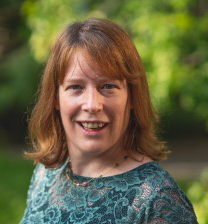LK_3 Special Day Lunchtime Keynote: Analyze the Patient, engineer the therapy
Liesbet Lagae, KU Leuven, Belgium

The complexity, cycle time and cost of new precision therapy workflow are a major challenge to overcome in order to achieve clinical implementation of this revolutionary type of treatments. For example, car T cells use the patient’s own immune (T-)cell adapted in a way to better fight cancer. Chip technology can help to make these therapies more efficient, precise, and cost-effective. Over the last few decades, the semiconductor industry has grown exponentially, poised to increase value to the end-user while driving down costs by scaling. The result is the world’s highest standard in precision and high-volume production of nanoelectronics chip-based sensor solutions. Imec has used its semiconductor process expertise and infrastructure to make significant innovations in single-use silicon biochip and microfluidic technology, creating toolboxes of on-chip functions spanning DNA sequencing, cell sorting, single cell electroporation, integrated biosensor arrays. The solutions have until now mostly served the diagnostic market. Chip based microfluidics is a toolbox that brings its own design challenges, especially in relation to not having to reinvent the wheel every time. Hence, we try to make maximal reuse of generic fluidic building blocks developed for the diagnostic market, and we will explain how these building blocks are equally adapted for addressing the challenges in immune therapy. These existing demonstrations on chip could enable to provide smarter solutions for discrete unit operations and quality monitoring to even complete workflow integration. Solving these challenges would enable more patients to access and benefit from the next most anticipated class of life changing therapies.


